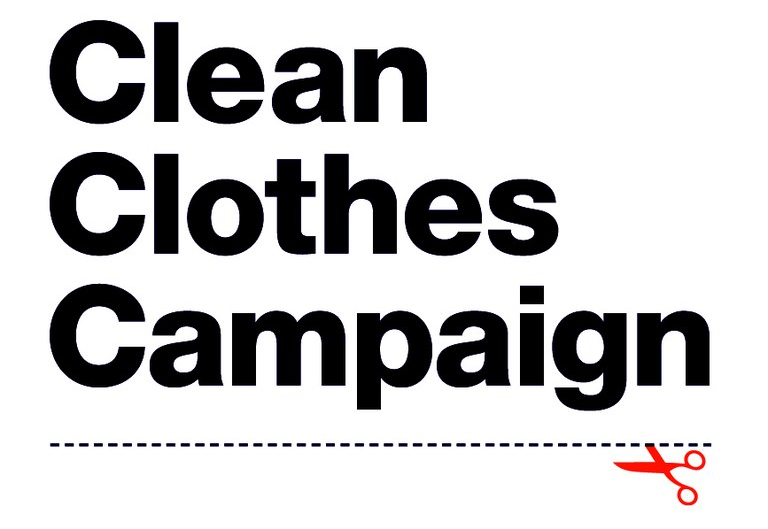Voluntary agreements
What’s better than brands’ giving their word on how things will improve for the workers with voluntary agreements? A legally binding agreement that holds brands accountable by a court of law.
The problem
About a decade after the adoption of the UN Guiding Principles (UNGP), it is clear that reliance on a voluntary framework has proven insufficient and ineffective for workers and the broader society. While various voluntary initiatives have been established from safety to wages and then some, research repeatedly reveals devastating facts. Working conditions and workers’ lives have not improved and the garment industry remains marred by endemic human rights violations and systematic exploitation.
Systemic patterns of human rights violations in the companies’ value chains speak volumes of a lack of systematic and meaningful Human Rights Due Diligence (HRDD) practice. Violations of freedom of association, poverty wages, even with extensive overtime, occupational health and safety issues, and gender-based discrimination and violence are frequently documented in numerous brands’ and retailers’ value chains – despite their public commitments that they would prevent such human and labour rights abuses. Neither non-judicial grievance mechanisms nor social auditing, certification schemes, or various (other) responsible business initiatives have had the impact touted at their launch.
Workers risk their lives to make T-shirts in crumbling buildings, many send their children to sleep hungry despite working 12, even 16-hour shifts, and many cannot even stay with their families because the cost of living near their workplace is prohibitive on poverty wages that workers are still being paid. Most of these workers being women, they also witness, and many experience, gender based violence and discrimination.
These are some of the issues that we hold garment companies directly responsible for, despite their smokescreens such as claims that by not being garment workers’ direct employers they are absolved of the responsibility to ensure safe and just working environments.
Clothing companies have responded to outside criticism of labour rights violations in their supply chains by promising to do better. Many use these voluntary commitments as a selling point, trying to signal that theirs is a socially conscious company.
The lofty Codes of Conduct and sugar coated public commitments since worker exploitation in outsourced factories was first widely exposed, in the 1990s, evaporated into thin air as soon as consumers’ gaze turned away.
What we do
As Clean Clothes Campaign, we are an active member in various coalitions and initiatives that ask for strong legislation.
Legislation that will guarantee the right to remedy when workers' rights are violated, that will ensure there is liability for the whole supply chain, and that includes climate and environmental considerations.
We believe there will be a need for legislation on various levels: a UN Binding Treaty, a strong EU legislation that includes special provisions for high-risk sectors like the garment industry, and national-level initiatives that can take further measures.
We want garment companies to clean up their act and the whole industry, and to do so now. Workers have waited far too long, with brands’ promises going unmet.
As a first step, we ask for binding agreements signed by brands and applicable at their supplier workplaces.
We want to see a series of enforceable supply chain agreements that will address specific issues within the supply chain. We want them to specify concrete measures as well as enforcement, supervision, complaint mechanisms and remedy.
These agreements are legally binding contracts that can be upheld in a court of law so brands cannot make promises that nobody holds them accountable for. They are voluntary in that garment brands individually opt in rather than face a legal requirement to sign on. These agreements create legal commitments, and if they are violated, brands can find themselves in courtrooms.
Examples of agreements that are a result of this strategy are the Accord on Fire and Building Safety in Bangladesh and the Freedom of Association Protocol in Indonesia. The latest such agreement addresses gender-based violence at factories in Lesotho, in the wake of Workers Rights Consortium’s investigation and subsequent negotiation with key buyers.
Next, we want to see enforceable supply chain agreements on wages.
We want due diligence to be a matter of regulatory compliance with not only clear enforcement mechanisms but also effective remedies. Human rights violations should be a matter of urgency for the garment and sportswear industry, it's time stakeholders work together to eradicate them from the supply chain.
Background
Companies have a lot of money to spend on presenting their toothless measures as social consciousness, and many consumers buy into this narrative. Yet it must be clear after decades of trying and testing that voluntary commitments are not enough.
The alterative we advocate are binding agreements that address the root causes of major problems. The promises contained in those documents are legally binding, unlike the many lofty words that brands put together to ride the wave of ”sustainable” consumption.
What distinguishes such agreements from the regular worker-management or workplace collective bargaining agreements is that they are negotiated with brands and retailers. These are not garment workers’ direct employers, but as buyers from garment factories they have a responsibility for working conditions and workers' rights in their supply chains — and they are the ones that hold the vast majority of profits made in this multibillion dollar industry.
Another defining feature of such binding agreements is that they address a particular issue, such as worker safety in the case of the Accord, or freedom of association in Indonesia.
Furthermore, there must be clauses that make the agreement a binding contract that gives the possibility for legal redress. We also envisage high levels of transparency such as through periodic public reporting on compliance.
Whereas it is desirable for global union federations to be involved in the agreements, local trade unions are meant to play a central role, as signatories and in the implementation and enforcement. Therefore, the agreements should also empower the local trade unions and increase their political space.
